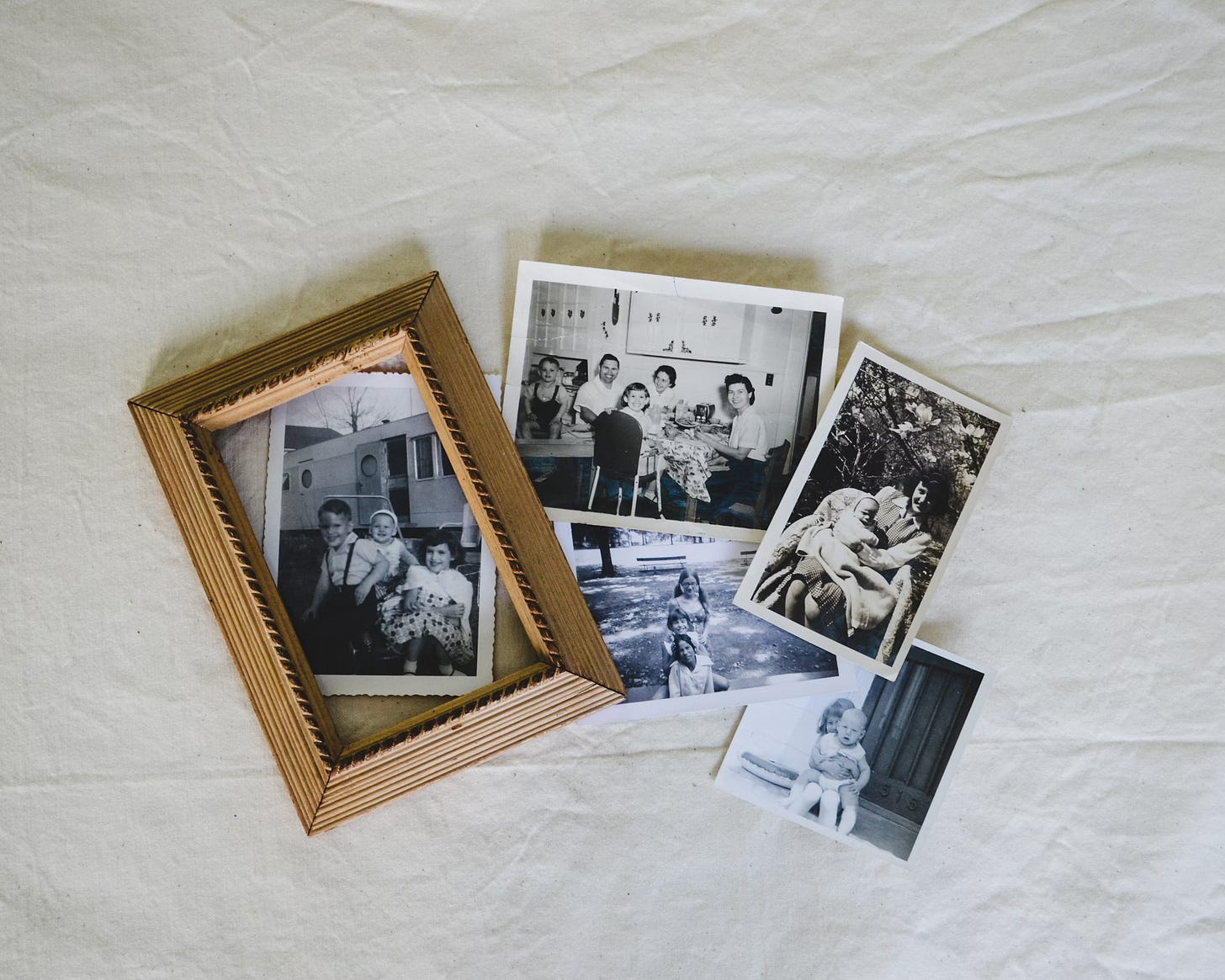The Social Dynamics of Nostalgia
Part II: Nostalgia in Microcosm and Some Personal Reflections on Nostalgia as a Transgender American
Hello, and welcome back to The Bugbear Dispatch! This week, following up on last week’s essay about the macroscale dynamics of group nostalgia and nostalgia’s role in fascist movements—particularly contemporary American fascism—I continue with an essay looking at nostalgia’s social dynamics on a smaller scale. Specifically, I look at how nostalgia functions in what distinguished cognitive scientist George Lakoff calls “strict father” families, and how strict father (i.e., authoritarian) socialization plays into the larger systemic dynamics I explored last week.
I follow that up with some personal reflections on my individual relationship with nostalgia, which is complicated by being a queer person raised in evangelical America, where strict father morality rules the day.
Strict Father Families and the Weaponization of Small-Scale Group Nostalgia
Have you ever stepped foot in a multi-generational small family business in the American South? If you have, then you’ll likely have noticed a wall of family photos, sometimes accompanied by the story of the company and/or particular reminiscences related to the family’s and business’s history. These nostalgic shrines aren’t ubiquitous, but they’re common enough. To some extent, they resemble the walls of family photos seen in many a conservative household, and sometimes found in Midwestern family businesses as well.
Frankly, they’re are always a bit off-putting to me.
It’s not that it isn’t good to have a loving, supportive blood family (if you’re lucky enough to have such a thing), but rather that I always wonder how much coercion, manipulation, and control might have been going on that doesn’t show up in the pictures. How many black sheep might be left out of the pictures? Or how many of the people in them were filled with quiet desperation and unattainable dreams as they posed?

To be sure, these family shrines may be, on some level, showcasing the kind of genuinely close-knit family and community that provides a great deal of social support. At the same time, these family photos and the (sanitized) local history they represent, along with the associated imagery and kitsch beloved by conservative Christian southerners and midwesterners, never tell the whole story. While an authoritarian Christian family may offer its members support, that support is often highly conditional. These images that capitalize on “family values” and nostalgia, but they do not display the tension, lying just beneath the surface, that often arises between individual autonomy and familial expectations and demands.
It’s funny, but the same kind of American right-wingers who love to talk about “individual responsibility” and “American individualism” typically employ a variety of coercive physical—that is, spanking and often even worse—and psychological disciplinary mechanisms to stamp out individual deviations from the family line. Since we’re talking about mostly white, conservative families in the United States, the family line means always voting Republican, though in the early and mid-twentieth century in the South it meant always voting Democratic but for the same racist reasons. Following the family line also means shutting up about any objections to racist, anti-LGBTQ, and misogynistic comments made by family members or Republican politicians, and of course it means not being queer. My own Midwestern family was quite controlling regarding my hair length as I grew up, because long hair, which I consistently wanted, might have suggested that I was a hippie and/or queer.
If you grew up in this sort of family, then, like me, you may have been educated in evangelical Christian schools, or you might have been homeschooled. What the authoritarian family gets out of that is the limitation of your options for breaking with the family’s mores, and certainly for finding any support as you do so. Isolation facilitates control and a variety of abuses.
And if you’re queer in this type of family and come out as a minor? To be clear, I did not, and I was so repressed I couldn’t even recognize my own queerness until I was in my early 30s. But if you do, you’ll likely be beaten, berated, and guilted into conformity to heteronormative expectations, or you’re going to have problems with your blood family.
Authoritarian family dynamics leave no room for a complex or nuanced approach to the past, which leaves white supremacist Christian patriarchal dynamics firmly in place.
Further expectations often pile up in right-wing Christian families. In addition to accepting young earth creationism and other anti-scientific conspiracy theories, going to “the right kind” of church, and marrying “the right kind” of Christian so you can pump out babies, you might be expected to go to a particular college or to a particular kind of college. This can easily be coerced in most cases, since higher education in the United States is prohibitively expensive, federal student aid is determined by family income, AND parents who don’t want their children to go, for example, to state as opposed to evangelical universities, can simply refuse to fill out the Free Application for Federal Student Aid (FAFSA).
Keep reading with a 7-day free trial
Subscribe to The Bugbear Dispatch to keep reading this post and get 7 days of free access to the full post archives.



